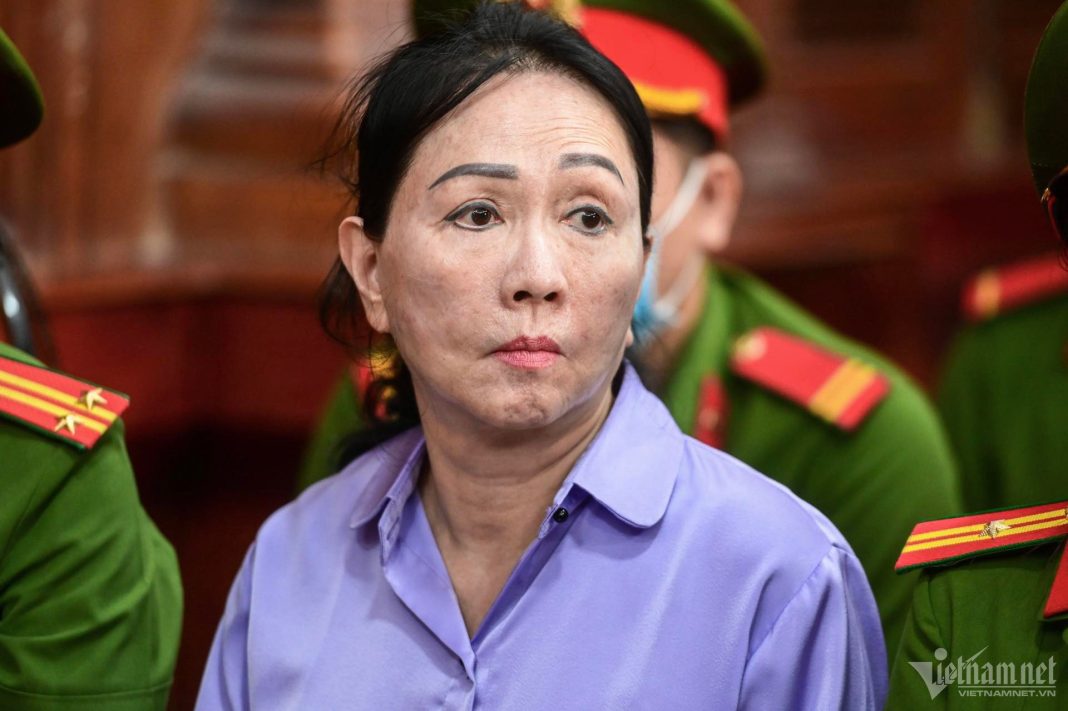HO CHI MINH CITY, Vietnam — In an unprecedented court case, Truong My Lan, a 67-year-old property developer, has been sentenced to death by the Ho Chi Minh City court, marking one of the most significant trials in Vietnam‘s history.
The conviction for orchestrating a colossal bank fraud spanning 11 years at one of the nation’s largest banks, Saigon Commercial Bank, reflects the severe measures the Vietnamese government is willing to enforce to combat financial crimes.
Truong was convicted on Thursday, April 11, 2024, of extracting approximately $44 billion in loans fraudulently, which she is now ordered to repay $27 billion of.
Her sentence is notably severe given the rarity of capital punishment for white-collar crimes in Vietnam, and even more so for female defendants.
“This has never been a show trial like this, I think, in the communist era,” noted David Brown, a retired US State Department official experienced in Vietnamese affairs.
The court proceedings were highly publicised, reflecting a shift in the typically reserved communication style of Vietnam’s communist authorities.
The trial involved 2,700 testimonies, 10 state prosecutors, and about 200 lawyers, indicating the massive scale and complexity of the case.
The verdict is part of the “Blazing Furnaces” anti-corruption campaign spearheaded by Communist Party Secretary-General Nguyen Phu Trong, who views corruption as a significant threat to the party’s dominance.
The campaign has already seen high-profile resignations and arrests since its inception in 2016.
Truong My Lan, originating from a Sino-Vietnamese family, rose from a market stall vendor to owning a vast portfolio of properties, leveraging reforms that opened economic opportunities.
However, her ownership of more than 90% of Saigon Commercial Bank through proxies, and her control over fraudulent loans, underscored deep-seated corruption within the Vietnamese banking sector.
Her dramatic fall from grace and the public handling of her trial have ignited discussions on the efficacy and motivations of Vietnam’s stringent anti-corruption drive.
Critics argue that while the campaign addresses visible symptoms of corruption, it also masks deeper systemic issues within the state’s relationship with the business sector.
The trial’s extensive coverage and the severe punishment meted out to Truong and her accomplices reveal a dual intent: to punish egregious corruption and restore the ruling party’s control over the economic activities in the historically more liberal southern region of Vietnam.
As Truong My Lan prepares to appeal her sentence, the case remains a critical example of Vietnam’s harsh stance on corruption, signaling potential shifts in the country’s governance and economic policies moving forward.







